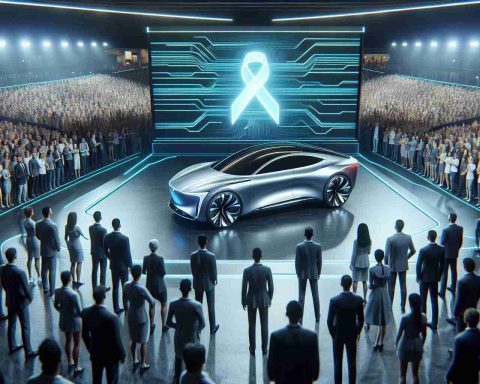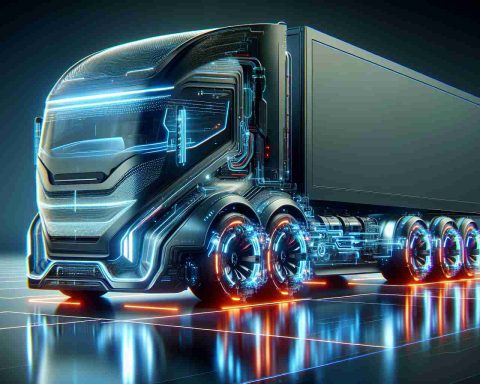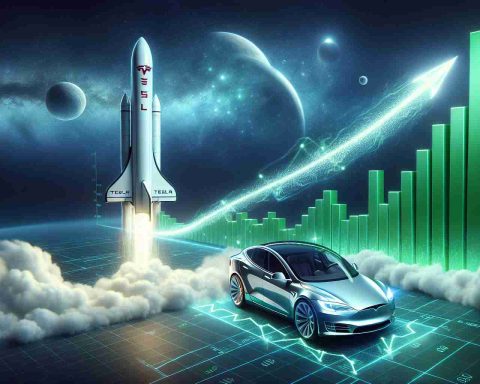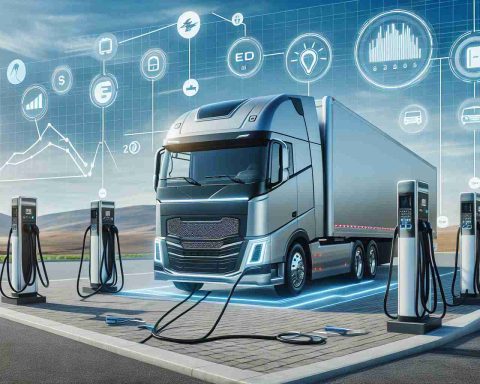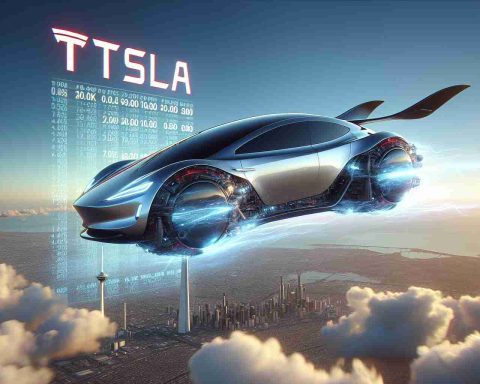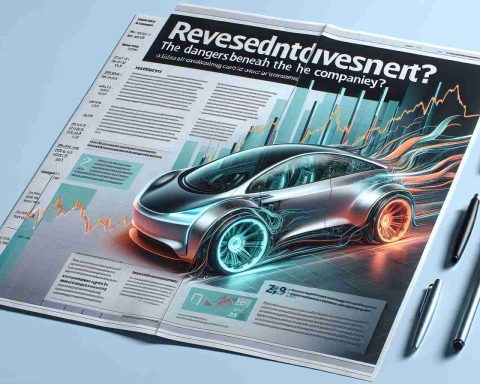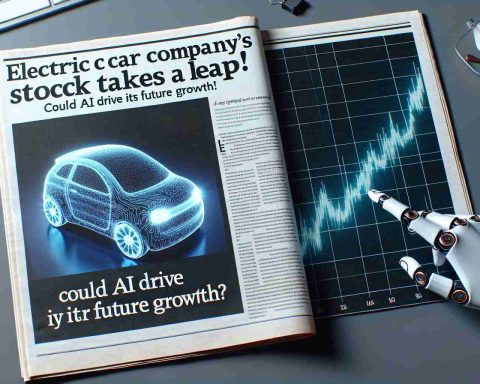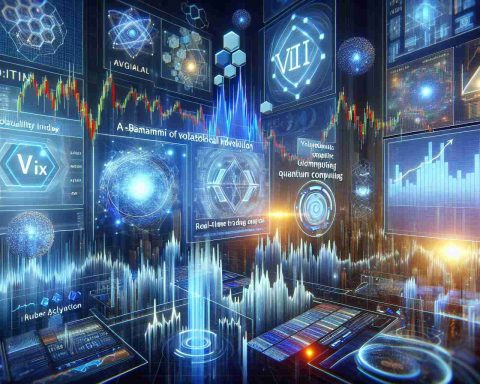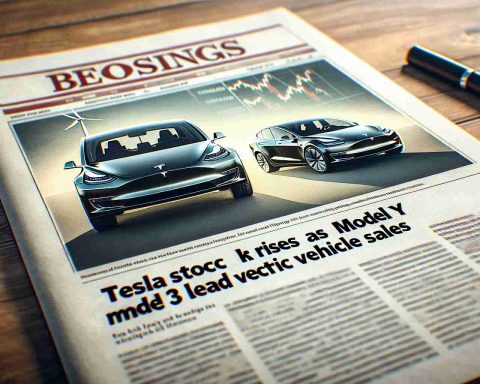Nikola Corporation, a name synonymous with visionary strides in zero-emission solutions, is once again taking the automotive world by storm with a daring plan to revolutionise the future of freight. After navigating troughs of scepticism and challenges, Nikola has announced a potentially game-changing initiative focused on long-range hydrogen fuel cell technology, which aims to redefine how we perceive sustainable transportation.
Nikola’s new vision places heavy emphasis on the integration of hydrogen-powered cells in their vehicle lineup, targeting a wider audience by offering enhanced operational ranges and reduced refuelling times. This development marks a significant shift in the trucking industry, which has predominantly been centred around battery-electric models. The company’s CEO, Michael Lohscheller, emphasised the strategic importance of these technologies in addressing the unique needs of long-haul freight, particularly as global pressures mount to cut carbon emissions.
What sets Nikola apart is their holistic approach towards not just vehicle production but also the infrastructure necessary for hydrogen power. The company plans to collaborate with industry leaders and stakeholders to establish a comprehensive hydrogen fuelling network. This network could potentially eliminate the two largest hurdles facing hydrogen adoption: availability and convenience.
The future of freight transportation appears to be on the cusp of a significant evolution. As Nikola Corporation continues to pursue its ambitious hydrogen integration and infrastructure goals, the coming years may see these bold moves propel the industry towards a cleaner, more sustainable future, sparking further innovations and developments across the transportation sector.
Nikola Corporation: Pioneering the Hydrogen Era in Freight Transportation
As Nikola Corporation charts a course towards revolutionary changes in freight transportation through its hydrogen fuel cell technology, the impacts on the environment, humanity, and the global economy could be profound. The company’s commitment to integrating hydrogen-powered vehicles promises not only a cleaner transportation alternative but also a potential trigger for substantial shifts in industry norms.
Environmental Impacts:
The incorporation of hydrogen fuel cells in heavy-duty vehicles offers significant environmental benefits. Unlike traditional diesel engines, hydrogen fuel cells emit only water vapour and heat, eliminating harmful pollutants and greenhouse gases. As countries worldwide strive to meet climate targets, Nikola’s advancements could dramatically reduce the carbon footprint of the transportation sector. This shift is critical as transportation is one of the largest contributors to global carbon emissions. By leading the way in hydrogen technology, Nikola could help advance climate resilience and environmental sustainability, fostering a healthier planet for future generations.
Humanitarian Benefits:
Access to cleaner transportation has a direct impact on public health, particularly in urban areas burdened by high levels of air pollution. By reducing emissions from freight transport, Nikola’s hydrogen vehicles could decrease the prevalence of respiratory conditions and improve overall air quality. Furthermore, as the adoption of hydrogen technology grows, new job opportunities in vehicle manufacturing, infrastructure development, and fuel supply will arise. These employment opportunities can drive economic upliftment and improve living standards, reflecting Nikola’s potential role in enhancing human welfare.
Economic Implications:
The economic landscape could undergo significant transformation as hydrogen technology becomes more mainstream. Nikola’s collaboration with industry leaders to build a hydrogen fuelling network addresses critical challenges of availability and convenience, which in turn could lower operational costs for freight companies. As hydrogen fuel cells gain acceptance, there could be a shift in investment towards renewable energy and infrastructure, encouraging more sustainable economic growth. However, this transition will require substantial initial investment and policy support to ensure that the infrastructure is economically viable and accessible.
Future of Humanity:
In the longer term, the successful adoption of hydrogen technology in transportation might inspire broader applications across various sectors, such as shipping, aviation, and even residential energy solutions. As societies move towards zero-emission technologies, a ripple effect could see hydrogen become a cornerstone of energy systems worldwide, catalysing a clean energy revolution. This has the potential to reshape not only how humanity transports goods but how we produce, consume, and sustain energy at large.
Ultimately, Nikola Corporation’s pursuit of hydrogen technology does more than promise to transform freight transportation—it symbolises a broader move towards sustainable development that could redefine humanity’s relationship with the environment and reshape our economic paradigms for a more sustainable future.
Why Nikola’s Hydrogen Fuel Cell Trucks Could Revolutionise Freight Transport
The landscape of freight transportation is undergoing a seismic shift as Nicola Corporation ventures into hydrogen fuel cell technology. As the company sets its sights on redefining sustainable transport, there are key elements and innovations worth exploring, bearing the potential to reshape the industry.
Pros and Cons of Hydrogen Fuel Cell Technology
# Pros:
– Extended Range: Hydrogen fuel cell trucks offer longer operational ranges compared to their battery-electric counterparts, a critical factor for long-haul freight.
– Rapid Refuelling: With fuelling times comparable to conventional diesel trucks, hydrogen-powered vehicles minimise downtime, thus enhancing efficiency.
– Eco-Friendly: Hydrogen fuel cells produce only water vapour as emissions, significantly reducing environmental impact.
# Cons:
– Infrastructure Scarcity: The current lack of a widespread hydrogen fuelling network poses a challenge, though Nikola’s strategic partnerships aim to address this.
– High Initial Costs: Development and production of hydrogen vehicles and fuelling stations demand substantial investments, potentially elevating overall costs initially.
Innovations and Features
Nikola’s commitment to innovation is evident in their effort to integrate hydrogen fuel cells into their vehicles. Key features include advancements in fuel cell stack efficiency and lightweight materials to maximise energy use and vehicle performance. The company’s holistic strategy encompasses both vehicle technology and infrastructure development, making them a vanguard in the industry.
Market Trends and Predictions
With stringent global mandates on carbon emissions, the market for clean and renewable energy vehicles is poised for growth. As hydrogen fuel cell technology matures, analysts predict a gradual but significant adoption in commercial transportation. Companies recognising this potential, such as Nikola, could lead the charge in a market projected to expand exponentially over the next decade.
FAQs
What makes hydrogen fuel cells suitable for long-haul transport?
Hydrogen fuel cells provide a high energy-to-weight ratio, enabling longer distances between refuels, crucial for long-haul operations.
How is Nikola addressing the current lack of hydrogen infrastructure?
By collaborating with industry leaders, Nikola plans to develop a robust hydrogen fuelling network, alleviating infrastructure barriers over time.
Security and Environmental Aspects
Hydrogen’s safety is prioritised through rigorous testing and adherence to stringent regulations. Environmentally, hydrogen fuel cells offer a zero-emission alternative, producing water as the sole by-product, thus supporting global sustainability goals.
In conclusion, Nikola Corporation is positioning itself as a transformative force in the freight industry with its hydrogen fuel cell initiatives. As the sector evolves, Nikola’s advancements may lead to a cleaner, more efficient future, aligning with increasing environmental concerns and regulatory demands.


